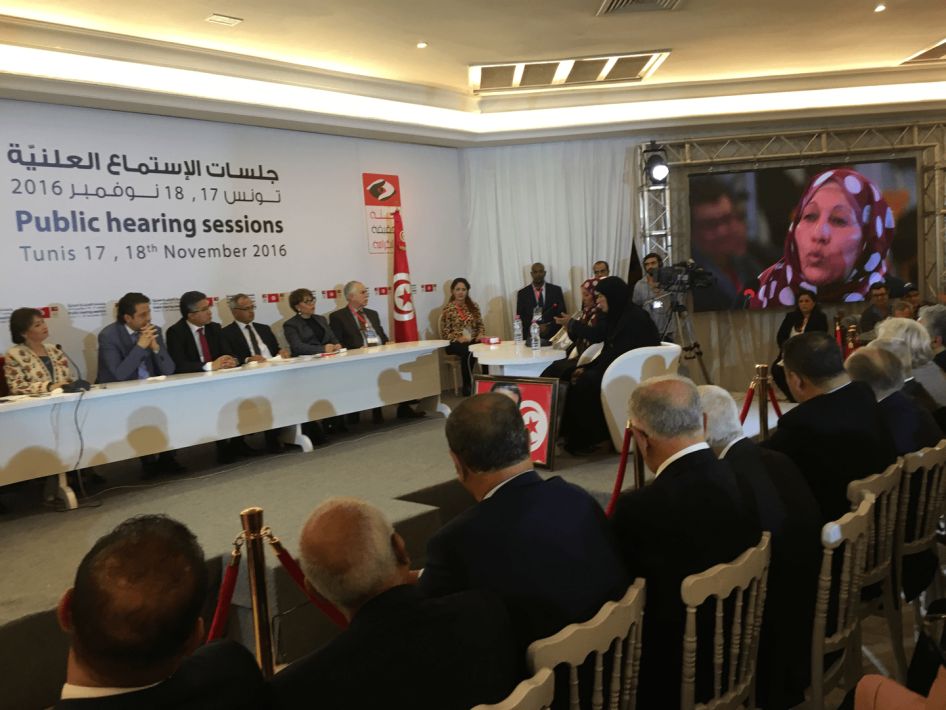The legacy of the 2011 popular uprisings in the Middle East ranges from distressing to catastrophic. The news from Egypt, Syria, Yemen, and Libya is grim.
Even in Tunisia, the country where it all started, a stubborn economic slump, terrorist attacks, and a perceived decline in public services have prompted some citizens to yearn for the era when President Zine el-Abidine Ben Ali ruled with an iron fist – despite the adoption since his ouster of a constitution strong on rights, the holding of fair, multiparty elections, and more freedom of speech.
But November 17 and 18 brought a rare piece of good news. On those two evenings, Tunisia’s Truth and Dignity Commission (Instance Vérité et Dignité, IVD), held in Tunis its first public hearings. Islamists, leftists, intellectuals, mothers of youths shot dead during the 2011 uprising, recounted, live on national television, the abuses they had suffered due to the determination of Ben Ali and his predecessor, Habib Bourguiba, to extinguish dissent.
The mother of Kamel Matmati, who was arrested in 1991 and quickly tortured to death, told the commission how Ben Ali’s police, to keep up the pretense that Kamel had escaped, harassed the family for years, pretending they were searching for him. Fatma trudged from prison to prison looking for her son. “In the summer my headscarf was covered in sweat. In the winter it was covered in mud,” she said. Only in 2009 did authorities notify the family that Kamel was dead, and only after the uprising did they obtain his death certificate.
The IVD faces opposition from those in Tunisia, and in neighboring countries, who wish it to stumble, especially in its quest for the prosecution of at least some perpetrators.
But the IVD has pulled off no small feat, launching the first national, public reckoning by any Arab country with its murderous past that provides any prospect of criminal accountability. The state-funded commission plans additional hearings in cities around the country.
Morocco is the only other country in the region that had some kind of truth commission. While that country’s Equity and Reconciliation Commission (ERC) did much to expose past repression, it did so in a context of regime continuity rather regime change, and with a mandate that excluded naming perpetrators, much less sending them to trial.
For at least some Tunisians, hearing the harrowing testimonies of their compatriots served to remind them of the reasons they rose up six years ago, in the only Arab uprising that has not gone off the rails. Those testimonies serve also as a flashing red light for those tempted to wax nostalgic about the not-too-distant past.









